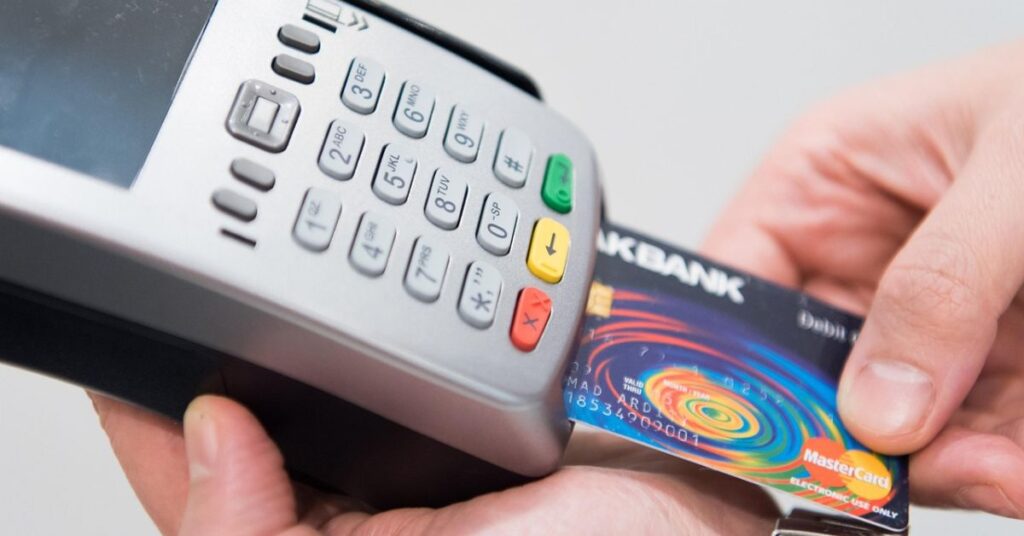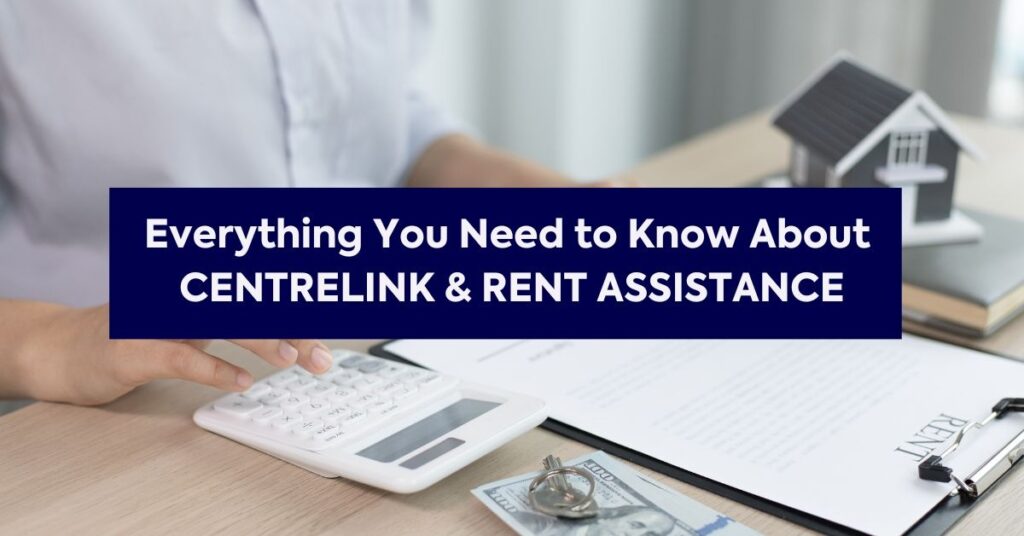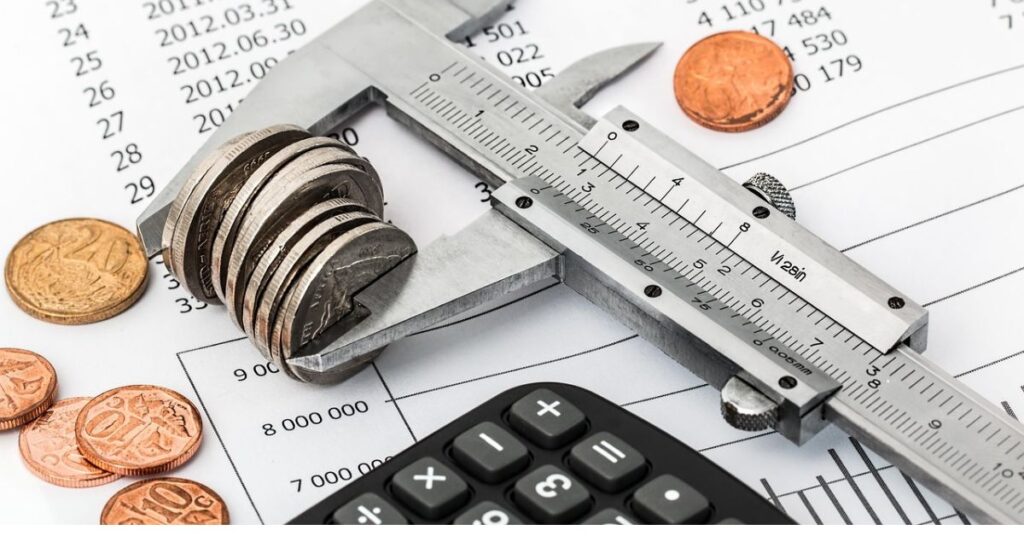Ever wondered if using Afterpay could mess with your credit score? It’s a fair question, especially with all the ‘buy now, pay later’ options popping up. We’re going to break down how Afterpay works, whether it checks your credit, and what happens if you miss a payment. By the end of this, you’ll know exactly how Afterpay fits into your financial picture and if it can affect your credit score.
What Is Afterpay & How Does Buy Now, Pay Later Work?

Afterpay has become a pretty common way to shop these days, especially for those of us watching our wallets. It’s part of the whole “Buy Now, Pay Later” (BNPL) movement, which is changing how people approach their spending. Basically, it lets you split your payments into smaller chunks, usually over a few weeks, instead of forking out the full amount upfront. Let’s get into the nitty-gritty of how it all works.
Afterpay operates as a financial tech company across Australia, New Zealand, the US, Canada, and the UK. It gives consumers buy now, pay later payment plans that break down purchases into manageable instalments, interest-free.
Here’s a quick rundown:
- Sign Up: You create an account with Afterpay, linking your debit or credit card.
- Shop: When shopping online or in-store at participating retailers, you select Afterpay as your payment method at checkout.
- Pay in Instalments: You’ll typically pay 25% of the purchase price upfront, with the remaining balance split into three equal instalments, due every two weeks.
- Automatic Payments: Afterpay automatically debits the instalments from your linked card, so you don’t have to worry about manually making payments. They’ll send reminders, too, so you don’t miss a payment.
BNPL services like Afterpay have really taken off because they offer a different way to manage your cash flow. Instead of using a credit card and potentially racking up interest, you can spread the cost of your purchase over a few weeks without any extra charges, as long as you pay on time. It’s all about budgeting and making things a bit more manageable.
It’s worth noting that Afterpay isn’t available everywhere. You can only use it at retailers that have partnered with them. The good news is that expanding its retailer partners all the time, so you’ll likely find it at many of your favourite shops. Some popular ones include:
- Roots
- Herschel Supply Co.
- American Eagle
- Dermalogica
Does Afterpay Perform Credit Checks?
When you sign up for Afterpay, you might be wondering if they’ll be having a peek at your credit history. The good news is, generally, Afterpay doesn’t conduct a full-blown credit check like you’d expect when applying for a credit card or a loan. This is one of the reasons why it’s so accessible to many people, including those focused on budgeting carefully and managing their spending — whether they’re earning $40,000 or 80000 after tax Australia.
However, there are a couple of instances where Afterpay might do a soft credit check. A soft credit check won’t affect your credit score, but it allows Afterpay to get a better understanding of your financial situation. This usually happens when you’re a new user or when you request a higher spending limit. They might just want to make sure you’re able to manage the repayments.
It’s worth noting that Afterpay’s primary method of assessing your ability to repay is by linking to your bank account or debit card. They use an automated system to check if you have sufficient funds available before approving a purchase. This means that your repayment history with Afterpay is more important than your credit score when it comes to getting approved for future purchases.
So, to summarise:
- Initial Sign-Up: Usually, no hard credit check.
- Increased Spending Limit: May involve a soft credit check.
- Payment Issues: Could trigger a review, potentially including a soft check.
It’s always a good idea to read the terms and conditions carefully when signing up for any BNPL service, just to be clear on their policies regarding credit checks and reporting. This way, you know exactly what to expect and can avoid any surprises down the track. Understanding how Afterpay works can help you use it responsibly and avoid any potential negative impacts on your financial health. Afterpay offers buy now, pay later payment plans to consumers.
Soft vs. Hard Credit Pulls: What’s the Difference?
When you’re thinking about how Afterpay might affect your credit, it’s important to understand the difference between soft and hard credit pulls. These are two different types of checks that can appear on your credit report, and they have different impacts on your credit score. Let’s break it down.
A soft credit pull generally doesn’t affect your credit score, while a hard credit pull can have a small, temporary impact.
Think of it this way:
- Soft Pulls: These are like a sneak peek at your credit history. They often happen when you check your credit score or when a company does a background check for employment. They’re also common for pre-approved credit card offers. Soft pulls aren’t visible to other lenders, so they don’t influence their decisions.
- Hard Pulls: These occur when you apply for credit, such as a loan or a credit card. Lenders use hard pulls to assess your creditworthiness. Because they indicate you’re actively seeking credit, they can slightly lower your score, especially if you have several in a short period.
It’s worth noting that the impact of a hard credit pull is usually minimal and temporary. Your score typically recovers within a few months, provided you manage your credit responsibly.
To illustrate the difference, here’s a simple table:
| Feature | Soft Credit Pull | Hard Credit Pull |
| Impact on Score | No impact | Potentially a small, temporary decrease |
| Visibility to Lenders | Not visible to other lenders | Visible to other lenders |
| Common Scenarios | Checking your credit, pre-approved offers | Applying for a loan, credit card, or mortgage |
Understanding this difference is key when considering how services like Afterpay might interact with your credit history. If Afterpay performs a hard credit pull, it could potentially affect your score, even if only slightly. If you’re looking to improve your credit score, you might want to check out some credit guide resources.
Does Afterpay Report to Credit Bureaus?
One of the most common questions surrounding Buy Now, Pay Later (BNPL) services like Afterpay is whether or not they report to credit bureaus. The answer to this question can vary depending on where you live. Let’s break it down.
In many regions, Afterpay does not regularly report your payment activity to credit reporting agencies. This means your on-time payments won’t necessarily help you build a positive credit history. However, it also means that simply using Afterpay responsibly won’t directly impact your credit score.
It’s important to remember that while Afterpay might not directly report to credit bureaus in all regions, other BNPL services might. Always check the terms and conditions of any BNPL service you use to understand its reporting practices. Some users also combine insights from BNPL usage with investment comparisons, like IWLD vs VGS, to better manage both short-term spending and long-term financial growth.
It’s worth noting that this can change, especially with increasing regulatory scrutiny of the BNPL sector. Keep an eye on updates from Afterpay and credit bureaus regarding any changes to their reporting policies. For example, new credit bureau reporting rules might come into effect.
Here’s a quick summary:
- In many regions, Afterpay doesn’t report to credit bureaus.
- This means on-time payments won’t build credit.
- It also means responsible use won’t directly impact your score.
- Always check the terms and conditions for reporting practices.
The U.S. Perspective: No Reporting Means No Score Impact
In the United States, the way Afterpay currently operates means it generally doesn’t directly impact your credit score. This is primarily because Afterpay, like many other BNPL services, doesn’t typically report payment activity to the major credit bureaus. This lack of reporting has a couple of key implications:
- On-time payments won’t help build your credit history.
- Missed payments, in most cases, won’t directly damage your credit score.
- Your credit report remains unaffected by your Afterpay transactions.
It’s important to remember that while Afterpay might not report to credit bureaus in the same way as a traditional credit card, this doesn’t mean there are no consequences for late or missed payments. Afterpay can still charge late fees, restrict your account, or even send your debt to a collection agency, which could then impact your credit score.
However, this situation is evolving, and it’s wise to stay informed about potential changes in the future.
Global Differences: How Afterpay Affects Credit in NZ & AU
While the US operates under a ‘no reporting, no impact’ model, things are a bit different Down Under. Afterpay’s influence on your credit score in New Zealand (NZ) and Australia (AU) is more nuanced. Let’s break it down.
Afterpay in New Zealand
In New Zealand, the impact of Afterpay on your credit score is generally similar to the US. Afterpay typically doesn’t report payment activity to credit bureaus. This means your on-time payments won’t boost your credit score, but, crucially, neither will your late payments hurt it – usually. However, if Afterpay refers your debt to a collection agency, that can show up on your credit report and negatively affect your score. So, while using Afterpay responsibly won’t directly build your credit, failing to pay can cause problems.
Afterpay in Australia
Australia is where things get a little more complex. While Afterpay doesn’t routinely report to credit bureaus, there are circumstances where your credit file can be affected. It’s less about the day-to-day use and more about what happens when things go wrong. If you default on your Afterpay payments and Afterpay takes action to recover the debt, this could be recorded on your credit report. This is especially true if the debt is sold to a collection agency.
Key Differences Summarised
To make it clearer, here’s a quick comparison:
| Feature | New Zealand | Australia |
| Routine Reporting | No | No |
| Impact of Late Payments | Indirect (via debt collection) | Indirect (via debt collection) |
| Credit Building | No direct impact | No direct impact |
It’s important to remember that even if Afterpay itself doesn’t report, other financial behaviours can still impact your credit score. Managing your overall debt and making other payments on time are still crucial for maintaining a healthy credit profile.
The Bottom Line
Whether you’re in New Zealand or Australia, the key takeaway is responsible use. While Afterpay might seem like a convenient way to buy now, pay later, it’s essential to understand the potential consequences of missed payments. Always budget carefully and ensure you can comfortably afford your repayments to avoid any negative impact on your credit file.
Can Late or Missed Afterpay Payments Hurt Your Credit?
So, can you actually damage your credit score by being tardy with your Afterpay payments? It’s a fair question, especially since we’re all trying to keep our credit in good nick. The answer isn’t as straightforward as you might think, and it depends on a few factors.
Generally, Afterpay doesn’t report late payments to credit bureaus in Australia. This means a missed payment won’t directly ding your credit score. However, that doesn’t mean there aren’t any consequences.
It’s important to remember that even if Afterpay doesn’t directly report to credit bureaus, consistently late payments can still affect your ability to use Afterpay in the future. They might lower your spending limit or even suspend your account.
Afterpay’s Late Fee Structure
While your credit score might be safe (for now), your wallet isn’t. Afterpay charges late fees if you don’t pay on time. These fees can add up, making your purchase more expensive than you initially planned. It’s worth knowing how these fees work to avoid any nasty surprises.
Here’s a quick rundown:
- Initial Late Fee: Usually around $10 for each late instalment.
- Additional Fee: If you still haven’t paid after a week or so, they might add another fee, potentially up to $7.
- Capped Fees: Afterpay caps late fees at either 25% of the purchase price or $68 per order, whichever is less.
Account Suspension and Spending Limits
Even if late payments don’t directly hit your credit score, Afterpay can still take action. If you consistently miss payments, they might reduce your spending amounts or even suspend your account altogether. This can be a real pain if you rely on Afterpay for your purchases.
Debt Collection
In more extreme cases, if you consistently fail to pay, Afterpay might pass your debt on to a debt collection agency. While Afterpay itself might not report to credit bureaus, debt collectors often do. If a debt collector reports your unpaid Afterpay debt, that will negatively affect your credit score. So, it’s best to avoid getting to that point.
The Importance of Responsible Spending
Ultimately, the best way to avoid any negative consequences is to use Afterpay responsibly. Make sure you can afford the repayments before you make a purchase, and set up reminders so you don’t miss any payments. It’s all about being smart with your money and avoiding unnecessary debt.
Indirect Credit Impacts: BNPL Payments & Borrowing Power
While Afterpay itself might not directly report to credit bureaus in Australia, its use can still indirectly affect your borrowing power and, consequently, your creditworthiness. It’s all about how lenders perceive your financial habits.
Overextension & Perceived Risk
Lenders assess your ability to repay loans by looking at your existing debts and spending habits. If you’re juggling multiple buy now, pay later payment plans, even if they’re interest-free, it can signal to lenders that you’re overextended. This perception of higher risk can impact your ability to secure a loan for a car, a house, or even a credit card. Lenders might see you as a riskier borrower and either deny your application or offer less favourable terms, such as higher interest rates.
Impact on Serviceability
When applying for a loan, lenders calculate your ‘serviceability’ – your ability to manage loan repayments based on your income and expenses. Afterpay repayments, like any other debt obligation, are factored into this calculation. The more you’re committed to Afterpay, the less disposable income you appear to have, potentially reducing the amount a lender is willing to lend you.
Consider this scenario:
- You want to apply for a home loan.
- The bank assesses your income and expenses.
- They notice several Afterpay commitments.
- Your borrowing capacity is reduced because of these existing repayment obligations.
Responsible Spending Habits
On the flip side, managing your Afterpay responsibly can indirectly demonstrate good financial habits. If you consistently make repayments on time and avoid overspending, it shows you’re capable of managing your finances. However, this positive impact is less direct and less impactful than the negative consequences of missed payments or overextension. It’s more about avoiding negative perceptions than actively building credit.
It’s important to remember that lenders look at the bigger picture. They want to see a history of responsible financial behaviour. While Afterpay itself might not be on your credit report, your overall spending habits and debt levels are definitely under scrutiny.
Budgeting & Financial Strain
Over-reliance on Afterpay can sometimes mask underlying financial issues. If you’re constantly using BNPL to make ends meet, it might be a sign that you’re living beyond your means. This can lead to a cycle of debt and financial stress, which can indirectly affect your creditworthiness if it leads to missed payments on other bills or defaults on loans. It’s crucial to budget carefully and use Afterpay as a tool, not a crutch.
Here are some things to keep in mind:
- Track your Afterpay spending to ensure it aligns with your budget.
- Avoid using Afterpay for non-essential purchases.
- Prioritise paying off your Afterpay debts to free up your cash flow.
Does Afterpay Affect Your Credit Utilization Ratio?
Credit utilisation is a big deal when it comes to your credit score. It’s basically how much of your available credit you’re using. Since Afterpay isn’t a credit line in the traditional sense, it doesn’t directly impact your credit utilisation ratio. However, there are a few things to keep in mind.
Afterpay itself doesn’t report to credit bureaus, so it won’t show up as a credit account affecting your utilisation.
Think of it this way: if you have a credit card with a $5,000 limit and you’ve used $2,500, your credit utilisation is 50%. Afterpay doesn’t factor into that calculation.
It’s important to remember that even though Afterpay doesn’t directly affect your credit utilisation, managing your finances responsibly is always a good idea. Overextending yourself with multiple BNPL services can still lead to financial stress and potentially impact your ability to repay other debts.
Here are a few points to consider:
- Using a credit card for Afterpay purchases can indirectly affect your credit utilisation if you’re not careful.
- If you’re already close to maxing out your credit cards, adding Afterpay payments on top could make it harder to manage your overall debt.
- Always budget carefully and make sure you can comfortably afford your Afterpay repayments.
Will Using Afterpay Help Build Your Credit History?
So, you’re thinking Afterpay might be a sneaky way to boost your credit score? Let’s get straight to the point: generally, no, it won’t. Here’s why:
Afterpay, in most cases, doesn’t report your payment activity to credit reporting agencies like Equifax or Experian. This means your on-time payments won’t contribute positively to your credit file. It’s like doing chores without anyone keeping score – you’re being responsible, but it’s not reflected in your credit rating.
Why Afterpay Doesn’t Typically Report
Afterpay’s business model isn’t really built around traditional credit reporting. They focus on quick approvals and smaller transaction amounts. Reporting every single transaction would likely be a logistical nightmare and might not align with their target demographic.
The Exception to the Rule
It’s important to note that policies can change. While Afterpay currently doesn’t report to credit bureaus in Australia, it’s always worth double-checking their latest terms and conditions. There might be future updates or partnerships that introduce credit reporting, so stay informed.
Focus on Traditional Credit Building
If you’re serious about building your credit history, focus on traditional methods. This includes:
- Getting a secured credit card and using it responsibly.
- Make timely payments on any existing loans or credit accounts.
- Avoid maxing out your credit card limits.
- Checking your credit report regularly for errors.
Building a solid credit history takes time and consistent effort. Don’t rely on BNPL services like Afterpay as a primary tool for credit building. Instead, focus on establishing a positive track record with traditional credit products.
Alternative BNPL Options and Credit Reporting
While Afterpay might not help, some other buy now, pay later payment plans do report to credit bureaus. It’s worth researching different BNPL providers if credit building is a key priority for you. Just be sure to read the fine print and understand the terms before signing up.
Consumer Protections & New Credit Bureau Reporting Rules

Consumer protections are in place to safeguard individuals using services like Afterpay. These protections vary depending on the country and specific regulations. It’s always a good idea to be aware of your rights and what recourse you have if something goes wrong.
It’s worth keeping an eye on any changes to credit bureau reporting rules, as these can significantly impact how BNPL services affect your credit file.
New rules are emerging around how Buy Now, Pay Later (BNPL) services are reported to credit bureaus. This is a developing area, and the implications for consumers are still unfolding. Let’s take a closer look.
Evolving Regulations
The regulatory landscape for BNPL is constantly evolving. Governments and financial bodies are increasingly scrutinising these services to ensure consumers are adequately protected. This scrutiny often leads to new rules and guidelines for BNPL providers.
- Increased Oversight: Regulators are paying closer attention to BNPL practices.
- Consumer Protection Focus: New rules aim to protect consumers from potential harm.
- Industry Standards: There’s a push to establish consistent standards across the BNPL industry.
Credit Bureau Reporting Changes
One of the most significant changes is the potential for BNPL services to start reporting to credit bureaus. This could mean that your Afterpay activity, both positive and negative, could impact your credit score. Previously, many BNPL providers didn’t report at all, meaning your Afterpay activity had no bearing on your credit history.
Implications for Consumers
These changes have several implications for consumers:
- Credit Score Impact: Responsible use of Afterpay could help build your credit, while late or missed payments could damage it.
- Increased Transparency: Credit reports will provide a more complete picture of your financial behaviour.
- Greater Accountability: BNPL providers will be held more accountable for their lending practices.
It’s important to regularly check your credit report to ensure the information is accurate and to monitor the impact of your BNPL usage. You can get a free credit report annually from each of the major credit bureaus. Keep an eye out for any discrepancies and report them immediately.
Tips for Managing Afterpay Responsibly Without Credit Harm

Using Afterpay can be a handy way to manage your budget, but it’s important to do it responsibly to avoid any negative impacts on your financial health. Here’s how to keep things on track:
Budget Before You Buy
Before you even think about clicking that ‘Pay with Afterpay’ button, take a good, hard look at your budget. Can you genuinely afford those repayments over the next six weeks without stretching yourself too thin? It’s better to delay a purchase than to risk late fees or, worse, falling into a debt cycle. Make sure you factor in all your other expenses and commitments before committing to another Afterpay plan.
Set Up Payment Reminders
Life gets busy, and it’s easy to forget things. Set up reminders on your phone or calendar a few days before each Afterpay payment is due. This gives you a heads-up to ensure you have enough funds in your account. Most apps also send reminders, but it never hurts to have a backup.
Link to a Debit Card (If Possible)
While Afterpay often allows you to link a credit card, consider using a debit card instead. This forces you to use money you actually have, rather than relying on credit. It’s a simple way to keep your spending in check and avoid accumulating credit card debt. If you do use a credit card, make sure you’re paying it off in full each month to avoid interest charges.
Avoid Overlapping Payment Schedules
Try not to have multiple Afterpay plans running at the same time, especially if they all have payments due around the same date. This can put a strain on your budget and increase the risk of missing a payment. Space out your purchases to stagger the repayment schedules. This will help you manage your cash flow more effectively.
Pay Early If You Can
If you find yourself with some extra cash, consider paying off your Afterpay balance early. This reduces the risk of forgetting a payment and frees up your spending power for other things. Plus, it gives you a nice little feeling of accomplishment.
Understand Afterpay’s Spending Limits
Afterpay doesn’t always approve every purchase. They have their own internal algorithms that assess your spending habits and repayment history. If you’re consistently making late payments or exceeding your limits, they may reduce your spending power or decline future purchases. Keep an eye on your spending habits to avoid surprises at checkout.
Contact Afterpay If You’re Struggling
If you’re having trouble making a payment, don’t just ignore it. Contact Afterpay as soon as possible to discuss your options. They may be able to offer a payment extension or work out a solution to help you get back on track. Communication is key to avoiding late fees and potential account restrictions.
Using Afterpay responsibly is all about being mindful of your spending and planning ahead. By following these tips, you can enjoy the convenience of buy now, pay later without putting your financial health at risk. Remember, it’s a tool, not a free pass to overspend.
Want to get the most out of Afterpay without hurting your credit score? Our website has heaps of easy-to-understand tips to help you out. Check out our full guide for all the details!
Frequently Asked Questions
What is Afterpay?
Afterpay is a financial technology company that operates in Australia, New Zealand, the UK, the US, and Canada. It offers ‘buy now, pay later’ plans, allowing customers to pay for purchases in instalments instead of all at once.
Does Afterpay check your credit history?
Generally, Afterpay does not perform a ‘hard’ credit check when you use their service. This means your credit score is unlikely to be affected by simply using Afterpay for purchases.
Will using Afterpay help improve my credit score?
No, Afterpay does not typically report your payment activity to credit bureaus in Australia. Therefore, using Afterpay, even with on-time payments, will not directly help to build your credit history.
What happens if I miss an Afterpay payment?
Afterpay does not report late payments to credit bureaus. So, a missed payment with Afterpay should not directly harm your credit score. However, late fees may apply, and Afterpay might limit your future spending if you have a history of missed payments.
How does Afterpay’s payment plan work?
Afterpay splits your purchase into four equal payments over six weeks. The first payment is due at the time of purchase, and the remaining three are paid every two weeks. There’s no interest if you pay on time.
Why might my Afterpay purchase be declined?
Afterpay might decline a purchase for several reasons, such as being a new customer, having a history of late payments, insufficient funds in your linked account, or issues with your payment card.
Can Afterpay indirectly affect my ability to get a loan?
While Afterpay itself doesn’t affect your credit score, using it might indirectly impact your ability to get other loans. Lenders might see your Afterpay commitments as existing debt, potentially influencing their decision to lend to you.
Where can I use Afterpay?
Afterpay is widely available across many online and in-store retailers in Australia. You can usually find a list of participating stores on the Afterpay website or app.












